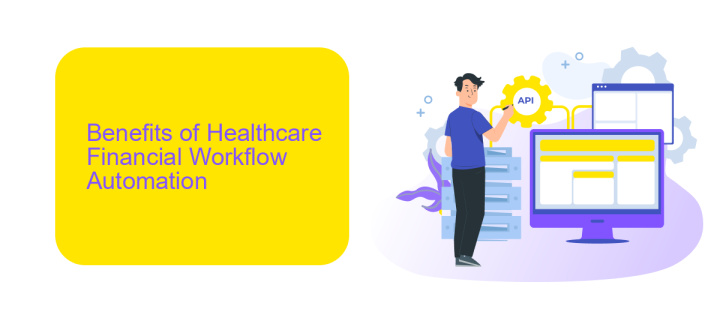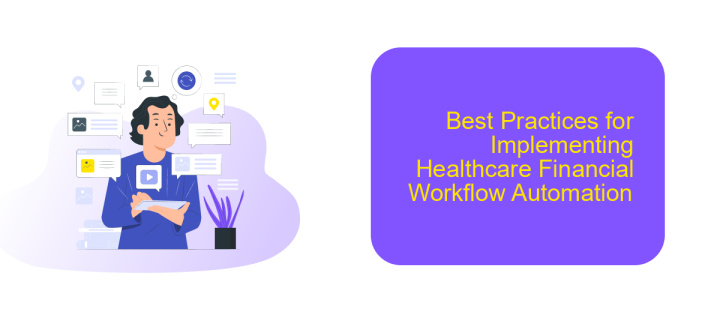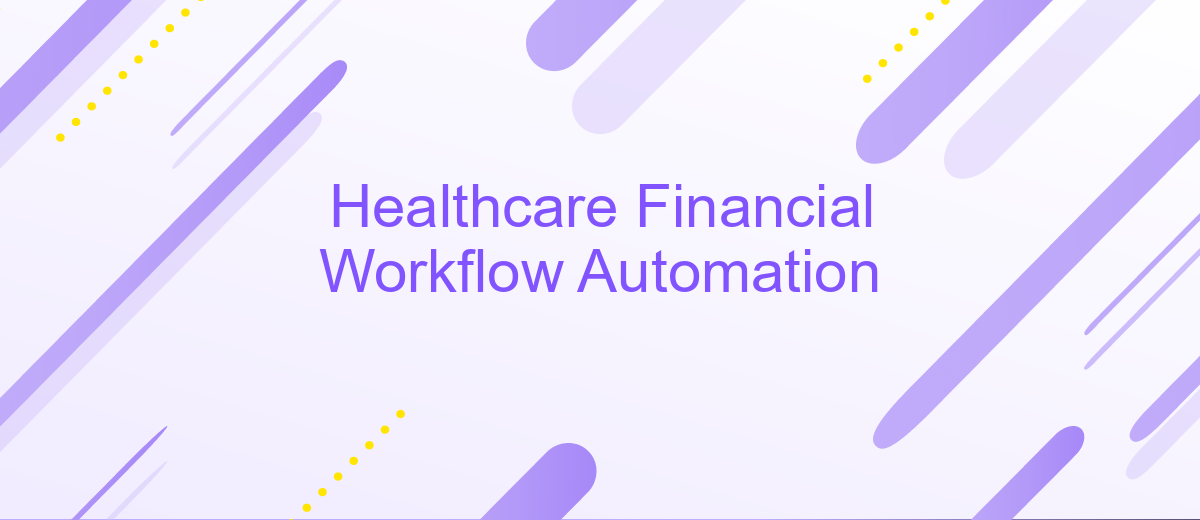Healthcare Financial Workflow Automation
In the ever-evolving landscape of healthcare, financial workflow automation stands as a pivotal innovation. By streamlining billing, claims processing, and revenue management, automation not only reduces human error but also enhances efficiency and accuracy. This article delves into the transformative impact of financial workflow automation in healthcare, exploring its benefits, challenges, and future potential for the industry.
Introduction
Healthcare Financial Workflow Automation is transforming the way healthcare organizations manage their financial operations. By streamlining processes and reducing manual tasks, automation helps improve efficiency, accuracy, and compliance in financial workflows. This not only saves time and resources but also enhances the overall quality of patient care.
- Elimination of manual data entry errors
- Faster processing of claims and payments
- Improved financial reporting and analytics
- Enhanced compliance with regulations
To achieve seamless integration of various financial systems, services like ApiX-Drive offer robust solutions. ApiX-Drive enables healthcare organizations to connect different software applications effortlessly, ensuring smooth data flow and synchronization. This integration capability is crucial for maintaining an efficient and reliable financial workflow, ultimately contributing to the organization's success and sustainability.
Benefits of Healthcare Financial Workflow Automation

Healthcare financial workflow automation significantly enhances operational efficiency by streamlining billing, claims processing, and payment collection. This reduces manual errors, accelerates revenue cycles, and ensures compliance with regulatory standards. By automating routine tasks, healthcare organizations can reallocate resources to more critical areas, ultimately improving patient care and satisfaction.
Another key benefit is the seamless integration of various financial systems. Tools like ApiX-Drive facilitate the integration of different software applications, enabling smooth data transfer and communication between systems. This not only improves data accuracy but also provides real-time insights into financial performance, helping healthcare providers make informed decisions. Overall, automation leads to cost savings, better resource management, and enhanced financial transparency.
Key Considerations for Healthcare Financial Workflow Automation

Implementing healthcare financial workflow automation requires careful consideration to ensure efficiency and compliance. Understanding the specific needs of your organization and the regulatory landscape is crucial.
- Data Security: Ensure that all automated processes comply with HIPAA and other relevant regulations to protect patient information.
- Integration Capabilities: Utilize services like ApiX-Drive to seamlessly integrate various financial and healthcare systems, enhancing data flow and reducing manual input.
- User Training: Provide comprehensive training for staff to effectively use the new automated systems, ensuring smooth transitions and minimizing disruptions.
- Scalability: Choose solutions that can scale with your organization’s growth, accommodating increased data volumes and more complex workflows.
- Performance Monitoring: Implement monitoring tools to track the performance of automated workflows, allowing for timely adjustments and optimization.
By addressing these key considerations, healthcare organizations can achieve a more streamlined and efficient financial workflow. Leveraging tools like ApiX-Drive for integration can significantly enhance the automation process, leading to better resource management and improved patient care.
Best Practices for Implementing Healthcare Financial Workflow Automation

Implementing healthcare financial workflow automation requires a strategic approach to ensure efficiency and accuracy. Begin by thoroughly evaluating your current workflows to identify bottlenecks and areas for improvement. This assessment will help in selecting the right automation tools tailored to your needs.
Next, invest in training your staff to ensure they are comfortable with the new systems. Proper training can significantly reduce the transition period and enhance the overall effectiveness of the automation process. Additionally, consider leveraging integration services like ApiX-Drive to seamlessly connect various healthcare and financial systems, ensuring smooth data flow and reducing manual entry errors.
- Conduct a comprehensive workflow assessment
- Invest in staff training and support
- Use integration services like ApiX-Drive
- Regularly monitor and optimize automated processes
Finally, continuously monitor the performance of the automated workflows and make necessary adjustments. Regular audits and optimizations will help in maintaining the efficiency and accuracy of the system, ensuring that it meets the evolving needs of your healthcare organization.
- Automate the work of an online store or landing
- Empower through integration
- Don't spend money on programmers and integrators
- Save time by automating routine tasks
Conclusion
The automation of healthcare financial workflows stands as a pivotal advancement in the industry, streamlining operations and enhancing accuracy. By incorporating advanced technologies, healthcare providers can significantly reduce manual errors, expedite billing processes, and improve overall financial management. This transformation not only alleviates the administrative burden but also allows healthcare professionals to focus more on patient care, thus improving service quality and patient satisfaction.
Integrating systems through platforms like ApiX-Drive further enhances these benefits by ensuring seamless data exchange between various healthcare and financial systems. ApiX-Drive simplifies the integration process, enabling healthcare organizations to effortlessly connect their existing software and automate data flow without extensive technical expertise. This level of integration is crucial for maintaining up-to-date records, ensuring compliance, and optimizing financial operations. Ultimately, the automation of healthcare financial workflows, supported by robust integration tools, is essential for modernizing healthcare financial management and delivering superior patient care.
FAQ
What is Healthcare Financial Workflow Automation?
How can automation improve the efficiency of healthcare financial workflows?
What types of tasks can be automated in healthcare financial workflows?
How can I integrate automation tools into my existing healthcare financial systems?
What are the benefits of using automation in healthcare financial workflows?
Strive to take your business to the next level, achieve your goals faster and more efficiently? Apix-Drive is your reliable assistant for these tasks. An online service and application connector will help you automate key business processes and get rid of the routine. You and your employees will free up time for important core tasks. Try Apix-Drive features for free to see the effectiveness of the online connector for yourself.


